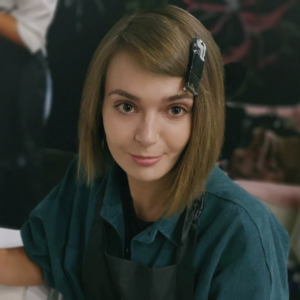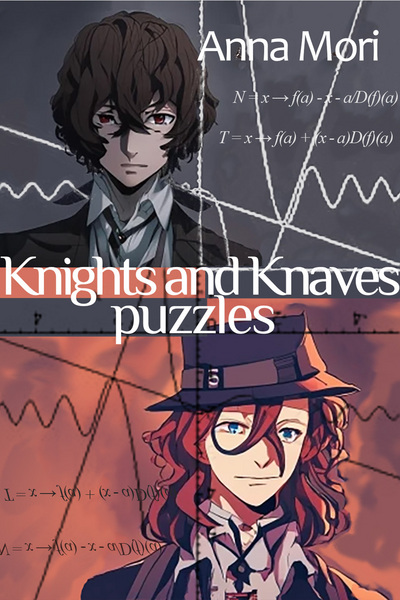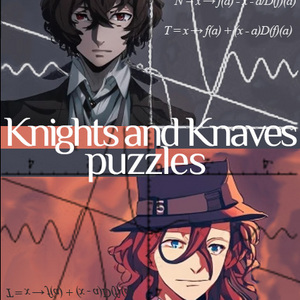***
Chuuya enjoyed comparing me to a chess player (typically pairing the metaphor with some profane embellishment), but, unfortunately, chess was a poor analogy for our situation. The events at the house in the woods had made that particularly clear.
Chess is a sequential, zero-sum game of complete information — not always simple (however unpleasant it is to admit, Mori usually beat me), but, at least in theory, solvable through brute-force calculation.
In war, information is never complete. Each player sees only their own pieces. For the longest time, I had deceived myself into believing I understood the opponent’s positioning, that I could anticipate every move. In reality, I was groping my way through the fog.
Moreover, war is not a sequential game — it is a parallel one. Only in bad books does a great strategist dramatically defeat his rival while the latter patiently waits for his doom, making no countermoves. In reality, players act simultaneously. You do not see the enemy’s move until you see its consequences. Your most brilliant plan may shatter against an unforeseen counter-strategy halfway through its execution.
In short, I had come to the same realization as Socrates: that I knew nothing. A most unpleasant thought.
And then, of course, war is a negative-sum game — the longer the match, the greater the losses…
How? How had my ability failed to work on Joanne?
Clearly, she had some form of protection against me. This led to one of two conclusions: either she was immune to the harmful influence of any ability, or she was specifically resistant to No Longer Human. The latter implied that she knew what my ability was — which meant she knew my true name. She knew everything.
When Chuuya had bolted from the purification ceremony, Joanne had seemed genuinely furious — but perhaps she had merely been putting on an excellent act.
Game theory has a concept known as the "rank of reflection" — "I know that you know that I know that you know..." In simpler terms, it refers to the levels of deception within a game. Up until this moment, I had assumed Joanne to be a rather straightforward, first-level player. That placed me on the second level. But what if she was, in truth, a third-level player? What if she had merely let me believe I had deceived her — playing me as a cat toys with a mouse?
Perhaps I should amend my earlier statement: I knew that, so long as I was alive and still in possession of my ability (which I had confirmed by nullifying Charlotte’s powers and weakening the barrier at the ceremony), then the same must hold true for Chuuya. But the thought of "it could have been worse" has never been among my preferred comforts.
"Mister Ikita," Joanne said, "I don’t imagine you’ll be surprised if I ask you to remain in England for a while. You know Mister Nakahara well — perhaps you could assist in his search and capture."
I calculated that panicking and exposing myself would be fatal. Continuing to play along — whether this was a game of deception or simply cat-and-mouse — would at least buy me time to regain my bearings. I chose to remain in character: Mister Ikita, the baffled and contrite observer of Chuuya’s escape.
"Of course," I said obediently. "I would be glad to be of service." (At the very last moment, I reminded myself to choose a neutral phrasing, omitting who exactly I would be serving. I nearly forgot to factor in Wilde’s presence — I had to tread carefully to avoid lying... assuming that even mattered anymore. I was beginning to suspect Joanne could see straight through me.)
"Then let’s consider you officially working under my command," she said. "No, no, membership in my Church and renouncing your abilities remain strictly voluntary (except for those who pose an obvious threat), and I won’t ask you to handle that aspect of our work… But I have noticed that you’re good with children. You did say you were a teacher, didn’t you...? The children of Avalon could use a good teacher."
Saint Joanne, as it turned out, was well-versed in the psychological stratagem known as the “Foot-in-the-Door” technique — the principle by which securing a minor concession increases the likelihood of obtaining a larger one. Perhaps she was unfamiliar with the terminology, but the method itself was clearly not foreign to her.
This did not surprise me in the least.
The question remained: what did she want, if she was indeed playing a level above me?
Did she hope that, sooner or later, I would come to accept her ideas and, like the others, plead for her to "purify" me? A rather audacious assumption on her part. And yet… not entirely foolish. Nor entirely senseless.
Mori had often said that one might deceive whomever one pleased — except oneself. And if I were to be wholly honest, I knew why the very concept of the Church of the Equalizers had enthralled me from the start, as a flame enthralls a moth.
Thus, I became a resident — or a prisoner — of Avalon. (I resisted the urge to ask outright which one I was, mindful that any hint of disobedience might result in my abilities being nullified or my existence terminated altogether.)
They showed me the room I was to live in first. A small chamber with a window half-cloaked in ivy, letting in little light, and a fireplace that had, by all appearances, not been lit in many years. The air was stagnant, damp. A bed, a wardrobe, an empty bookshelf. It was not the most hospitable of dwellings.
London’s infamous weather, it turned out, was no mere slander. A grey shroud of rain refused to lift. Droplets tapped against the window in the morning, at noon, at dusk…
There exists a well-documented form of water torture — one binds the victim so they cannot move, and lets a single drop fall onto their forehead at regular intervals. My past in the Port Mafia had acquainted me with far more such curiosities than the average person, so I knew that while this method is often attributed to the Chinese, Europeans had employed it as well. The Mafia preferred more expedient and effective techniques, though.
The essence of torture is that, at first, the steady dripping is merely an irritation, but soon, each drop begins to feel like the strike of a hammer against the skull, and before long, the prisoner, driven mad, will confess to any crime demanded of them.
Now, I do not claim that the ceaseless rain beyond my window was equivalent to torture, but when paired with the tangle of bleak thoughts in which I thrashed like an insect in a web, it was a torment in its own right, dismantling my sanity with the methodical patience of a seasoned psychiatrist.
To make matters worse, there was Oscar Wilde — always there, lingering. He did not seem to live in Avalon full-time — he surely had an apartment, more likely a house or an estate — but as Joanne’s sort-of-secretary, he handled certain administrative matters at the orphanage and had been assigned a room here. His constant presence grated on my nerves.
I was uncomfortably aware of how easily I had been demoralized. Worse, I understood why: it had been a long, long time since I had lost.
To be precise, I had only ever lost to one person.
And thoughts of him — of being ten years old again — of fear, the eternal companion of my childhood, a feeling I had believed long buried — haunted me without mercy.
Drip. Drip.
One particular logical paradox played on an endless loop in my mind: the Prisoner’s Paradox, or the Paradox of the Unexpected Execution. The premise is simple — an inmate is told two seemingly contradictory statements: “You will be executed at noon next Friday, and it will come as a surprise to you.” The prisoner, recognizing the contradiction — how can an execution be a surprise if he knows the exact time? — concludes that the sentence cannot possibly be carried out. And yet, come Friday, he is indeed executed, and it is, as promised, a surprise — because he had convinced himself it was impossible.
I used to find that paradox amusing.
I no longer did.
Had I, in those early days, considered striking first, eliminating Joanne physically? Yes. But she was almost never alone. There was always someone nearby, someone whose combat skills were, at a glance, no worse than my own.
And then, once I was settled in Avalon, I discarded the thought entirely. Even without a weapon, I could have tried — one can kill a person with a knife, a fork, the leg of a chair if one must — but I feared that she had some means of defense beyond my comprehension. A failed attempt would be worse than inaction — it would expose me at once.
How had my ability failed to affect her — twice? Could she be immune not only to supernatural harm but to physical violence as well?
“You will be executed at noon next Friday.”
Drip. Drip.
"And what exactly is expected of me?" I inquired on the first day of my newfound "teaching" career. "Psychological counseling? Fractions and logarithms?"
"Fractions and logarithms are my domain," Joanne replied with a smile. "Not every day, of course; they usually study on their own. They’re all of different ages and at different levels, so we don’t hold lessons in the traditional sense. The teacher’s role here is to help with whatever a child struggles to grasp. Miss Avenger, who used to teach literature, recently left… Do you think you could take her place?"
"Literature?… Most of them are little children. I doubt we should be assigning them essays on the thematic underpinnings of The Odyssey."
"Yes, we’ll leave the return to Ithaca for the older ones. The little ones just need something simple read to them."
Evening had already set in — though given the perpetually overcast sky, it was hard to say if it had ever been truly daylight — and the children seemed to be preparing for bed.
"Why don’t you read them something now?" Joanne suggested suddenly.
"Very well — what shall it be?"
"Recalling our recent conversation, I would be tempted to suggest something by Nietzsche… Just a jest, Mr. Ikita. A fairytale. Read them a fairytale. Last night, they listened to The Little Mermaid. Next in the collection… ah, The Snow Queen — perfect."
The children gathered around me. Joanne, too, sat nearby, ready to listen.
I began:
"Once upon a time, the Devil crafted a looking-glass which had this property: that everything good and beautiful that was reflected in it shriveled away in it to almost nothing, but everything that was no good and looked ugly came out plain and showed even worse than it was …"
I was reminded of the times I had read aloud like this before, to Q. What had I read to him? Alice’s Adventures in Wonderland, I think.
For every child, there exists a story that, with merciless precision, encapsulates the hell in which they simmer — the phrase Joanne had used, wasn’t it? Q never did find his way out of his rabbit hole.
"… In a cramped city, where few had the luxury of even the smallest garden, and where most had to content themselves with potted plants indoors…"
I remembered my supposed role as a teacher and added, "The flowers in this story symbolize love."
"…There lived two children who, by fortune, had a little garden larger than a mere flowerpot."
"They better have had a kitten," a girl interjected.
"There was a kitten too," I assured her patiently.
"And a puppy?" demanded another. "They won’t let me have a puppy here."
"There was a puppy as well. But the story is not about them. Now, as I was saying — there lived two poor children, who had a rose garden…"
"Are they still alive?"
"You’ll find out if you listen properly and don’t interrupt."
"I hope they didn’t die," she remarked, but she took the hint, and the rest of the tale unfolded in silence.
"...‘Ow!’ the boy cried suddenly. ‘Something stabbed me right in the heart! And something got into my eye!’
The girl threw her little arms around his neck; he blinked, but nothing seemed to be there.
‘It must have fallen out!’ he said.
But it hadn’t. What had entered his eye and his heart were two splinters from that Devil’s looking-glass, in which, as we surely recall, all that was grand and good appeared wretched and contemptible, while all that was wicked stood out in grotesque relief.
Poor Kay! Now his heart would turn to ice. The pain in his eye and his chest soon faded, but the shards remained lodged within.
‘Why are you crying?’ he asked Gerda. ‘Ugh! It makes you look so ugly! It doesn’t hurt at all! Yuck!’ He recoiled suddenly. ‘That rose is being eaten by a worm! And that one is crooked! Rotten roses they are, after all, like the boxes they're in!’ "
By the time I reached the scene of the Snow Queen riding her sledge into the winter square, nearly all of children had fallen asleep. The girl who had asked about the kitten dozed against my shoulder, jabbing me mercilessly in the ribs with her sharp elbow.











Comments (0)
See all